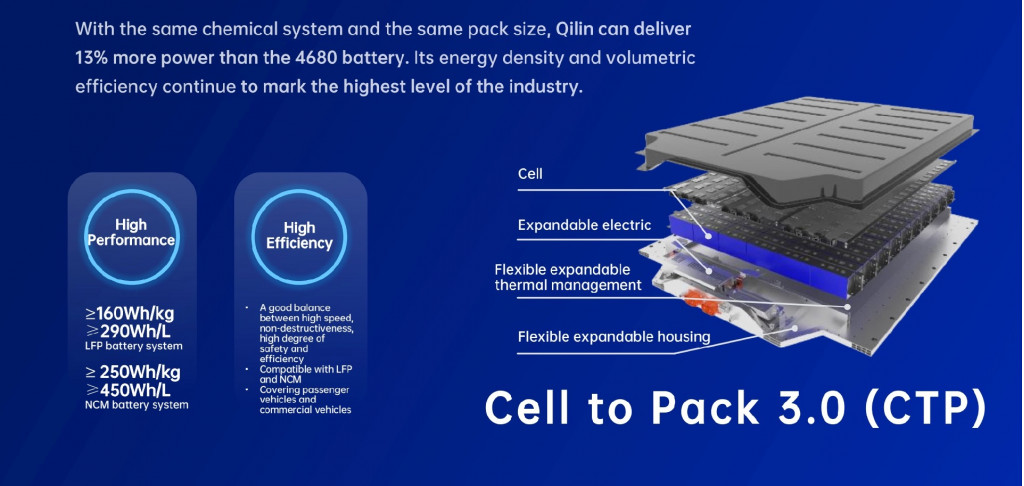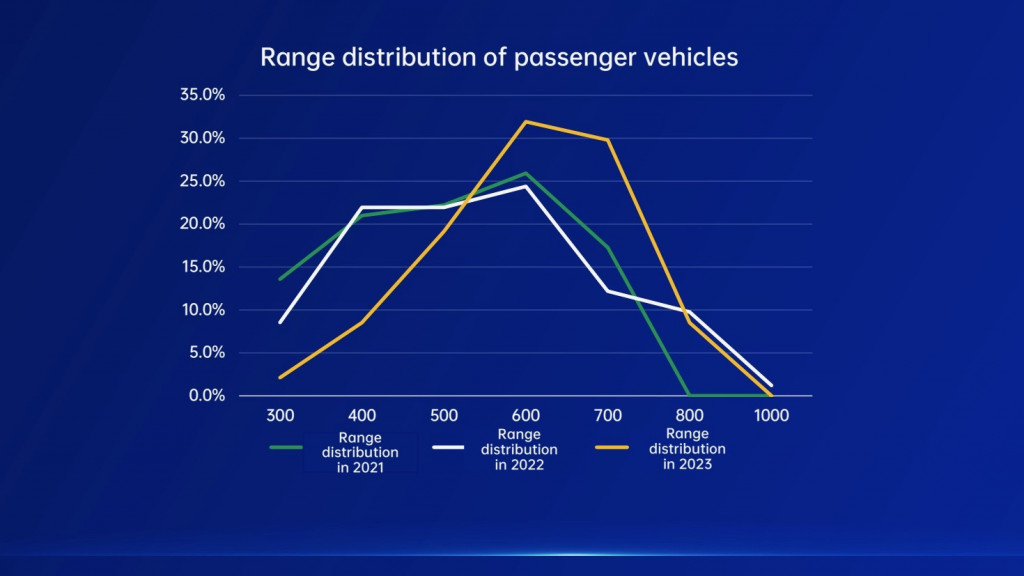Battery supplier CATL on Wednesday announced its third-generation cell-to-pack technology, claiming this new version produces more power than the latest Tesla battery tech.
Cell-to-pack refers to the direct integration of cells into a battery pack, without the modules used in most current pack designs. CATL claims the latest iteration of this tech, known internal as the Qilin Battery, can deliver 13% more power than the 4680-format cells Tesla is shifting to, given the same volume.

CATL third-generation cell-to-pack tech
The 4680 cells are larger versions of the cylindrical cells Tesla currently uses, something CEO Elon Musk has said will unlock cost savings. The automaker plans to start using them in production vehicles beginning with Model Y crossovers assembled at its new Texas plant.
CATL also claims cost-effectiveness is an advantage of its cell-to-pack tech. A company press release said cell-to-pack will provide "a balance between long range and economical efficiency." The company has already made agreements with several automakers for the tech, including Hyundai, Kia, and Genesis. However, no automaker has confirmed a production model that will make use of the tech.

Range distribution of electric vehicles (image via CATL)
Cell-to-pack isn't the only revolutionary piece of battery tech CATL claims to have in its arsenal. The company has said that it has the technology for million-mile, 16-year batteries, and it has teased some attractive specs and performance for future sodium-ion cells.
CATL also earlier this year rolled out a new battery-swapping solution. Called Evogo, it's a standalone business built around swap-friendly packs that all for one-minute swaps, according to CATL. In January, CATL said Evogo would launch in 10 cities, with more information to be revealed at a later date.











